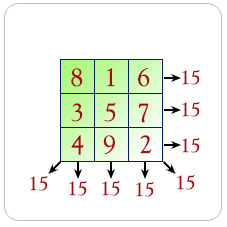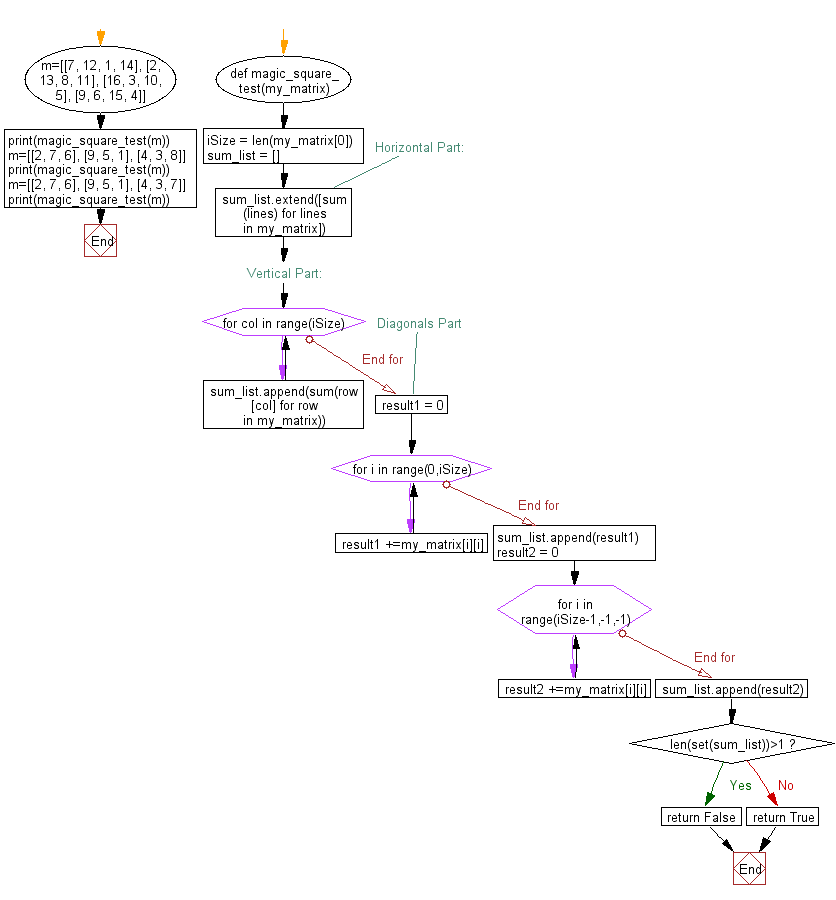Python Math: Calculate magic square
20. Magic Square Calculator
Write a Python program to calculate the magic square.
A magic square is an arrangement of distinct numbers (i.e., each number is used once), usually integers, in a square grid, where the numbers in each row, and in each column, and the numbers in the main and secondary diagonals, all add up to the same number, called the "magic constant." A magic square has the same number of rows as it has columns, and in conventional math notation, "n" stands for the number of rows (and columns) it has. Thus, a magic square always contains n2 numbers, and its size (the number of rows [and columns] it has) is described as being "of order n".
Pictorial presentation:

Sample Solution:
Python Code:
def magic_square_test(my_matrix):
iSize = len(my_matrix[0])
sum_list = []
#Horizontal Part:
sum_list.extend([sum (lines) for lines in my_matrix])
#Vertical Part:
for col in range(iSize):
sum_list.append(sum(row[col] for row in my_matrix))
#Diagonals Part
result1 = 0
for i in range(0,iSize):
result1 +=my_matrix[i][i]
sum_list.append(result1)
result2 = 0
for i in range(iSize-1,-1,-1):
result2 +=my_matrix[i][i]
sum_list.append(result2)
if len(set(sum_list))>1:
return False
return True
m=[[7, 12, 1, 14], [2, 13, 8, 11], [16, 3, 10, 5], [9, 6, 15, 4]]
print(magic_square_test(m));
m=[[2, 7, 6], [9, 5, 1], [4, 3, 8]]
print(magic_square_test(m));
m=[[2, 7, 6], [9, 5, 1], [4, 3, 7]]
print(magic_square_test(m));
Sample Output:
True True False
Flowchart:

For more Practice: Solve these Related Problems:
- Write a Python program to generate a 3x3 magic square where the sums of rows, columns, and diagonals are equal, and then print the square.
- Write a Python function that calculates a magic square of order n and prints the grid in a formatted table.
- Write a Python script to validate a given square matrix as a magic square by checking the sums of its rows, columns, and diagonals.
- Write a Python program to generate and display all possible 3x3 magic squares using backtracking.
Go to:
Previous: Write a Python program to multiply two integers without using the * operator in python.
Next: Write a Python program to print all primes (Sieve of Eratosthenes) smaller than or equal to a specified number.
Python Code Editor:
Have another way to solve this solution? Contribute your code (and comments) through Disqus.
What is the difficulty level of this exercise?
Test your Programming skills with w3resource's quiz.
